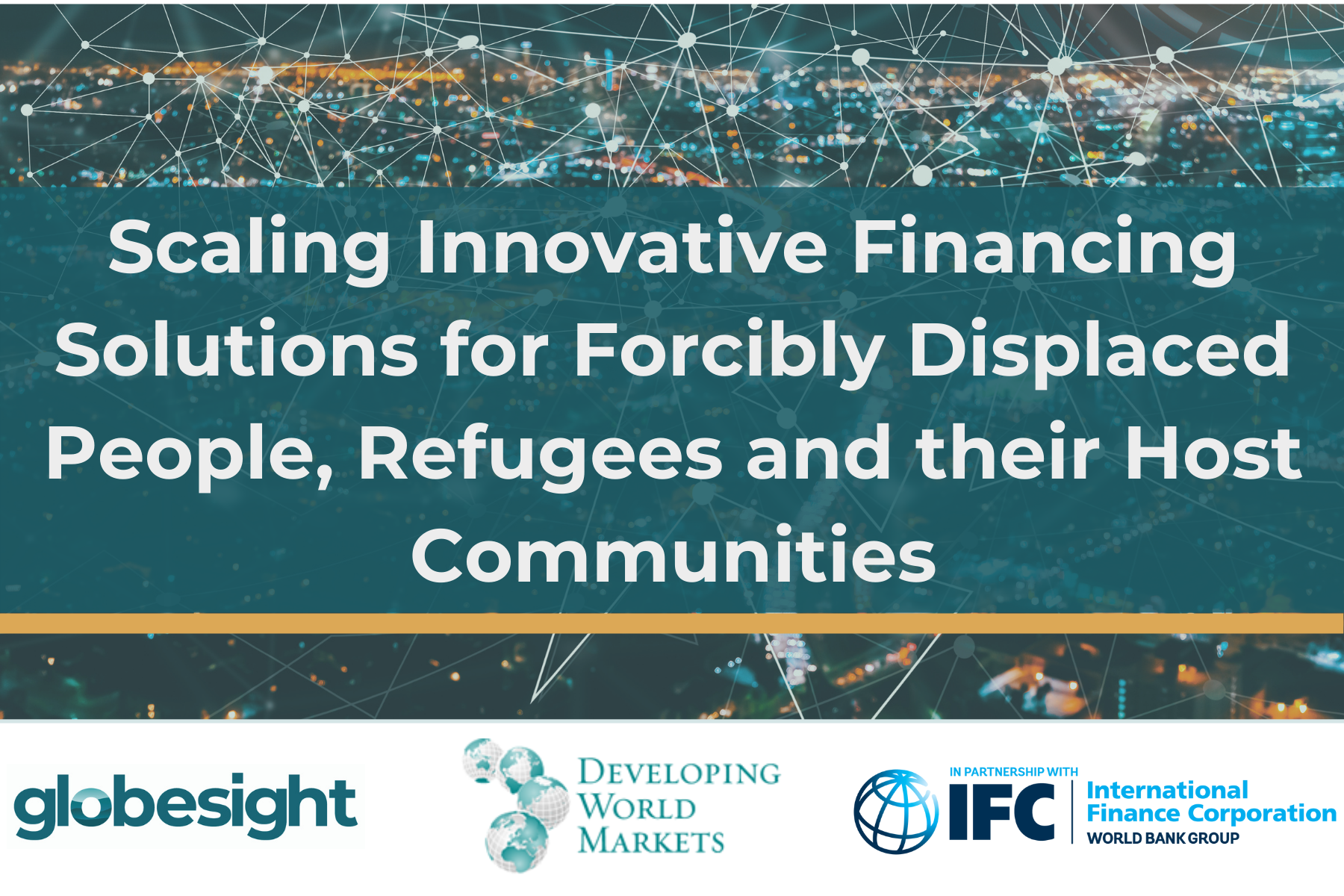Globesight’s jointly hosted roundtable alongside Developing World Markets convened IFC’s Senior Manager of Blended Finance Kruskaia Sierra-Escalante; UNHCR’s Chief of Section for Development Partnerships, Analytics and Research in the Resilience and Solutions Division Betsy Lippman; DFC’s Director of Finance Bruce D. Cameron and Developing World Market’s Partner and Co-head of Private Equity Aleem Remtula to discuss scaling innovative finance solutions for forcibly displaced people, refugees and host communities. The discussion was moderated by Globesight’s Development Finance Advisor Cedric Joutet.
The Roundtable enabled participants to collectively assess the landscape of innovative finance for displaced communities and refugees, identify critical enablers for impact, and scale common pathways of innovation. The panel addressed the growing numbers of displaced persons globally especially among threats like climate change. It emphasized the private sector’s ability to bring the scale required to address the financing gap for forcibly displaced people, refugees, and host communities especially in protracted situations; humanitarian aid can not meet the financing gap alone. Blended and innovative finance can facilitate the transition from concessional financing to commercial solutions, unlocking more private sector players to build commercially sustainable markets. Since high perceived risk is a deterrent for new players, it is important to build partnerships that can create precedents. This risk can also be mitigated through mining evidence and data such as the UNHCR study that substantiated that refugees payback and the IFC Kakuma study that tracked the circulation of money within the camp’s economy.
The group also highlighted how facilities such as SIDA-UNHCR, the NASIRA fund, Kiva Refugee Investment Fund (KRIF), and Development Impact Bond (DIB) for refugees are building the necessary track record for innovative financing for refugees. Further, IFC has also launched the new Blended Finance for Refugees facility which seeks to de-risk and increase the financial viability of projects benefiting displaced communities in African and Middle Eastern countries. UNHCR is also exploring innovative instruments including a green financing facility to reduce their carbon footprint, an impact bond for innovative livelihoods, and an innovative fund to finance for reforestation and clean cooking solutions. Innovest Advisory and FMO also shared successful insights from their respective interventions; mainly highlighting the importance of gathering granular data and insight into lending impact.
While tremendous progress has been achieved, further dialogue and partnerships are needed to allow international agencies and the private sector to collaborate further, create new markets, and attract return-oriented capital with a positive impact on forcibly displaced people, refugees and their host communities.
Watch here: https://www.youtube.com/watch?v=J9EWoH-knTw&t=10s

